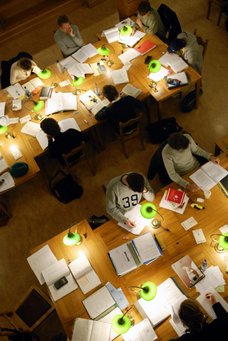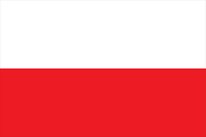Is the Norwegian model in danger?
In the first decades of the 21st century, some Norwegian commentators have been calling for an increased emphasis on commercial competition in Norwegian business and education, and an increased focus on profits as a measure of relevance and utility. This trend poses a threat to the social welfare model in Norway as it is traditionally construed. We argue that the success of the Nordic model during the last century rests on a synergy between competitiveness, inclusiveness and equality, and this combination is what has made the ‘model’ so sustainable and resilient.

Some Norwegian actors and commentators seek to challenge what has been conventionally perceived as the 'Norwegian model'. For example, they support initiatives like an increase in directors’ fees to make these positions internationally competitive; that universities need to be more closely connected with business models; and that there should be more investment in super-tech entrepreneurs - people like Bill Gates and Mark Zuckerberg – and less investment in the humanities, as these subject areas do not lead to productive jobs. Some go so far as defining ethics, philosophy, literature, culture and history as "useless" and thus not fundamental to society.
Competition and fairness
The strength of the Nordic model is based precisely on the balance and productive interaction between competition on the one hand, and cooperation and justice on the other. The latter is deeply rooted in cultural values upon which the Norwegian model rests, in our view.
The escalation of government fees to an internationally competitive level and the vision of technocratic elitism can be reconciled with the Norwegian / Nordic model - but under one significant condition: namely, as long as inclusive and justice-creating initiatives are secured at the same time. If Norway is to gain in competitiveness only through liberalist means, it may increase productivity - but at the risk of growing inequality and social exclusion. This means a weakening of the Norwegian model. In Sweden, increased inequality has been reported as wages have gone up, while social benefits have stagnated.
Nordic humanism
In our book ‘Sustainable Modernity’, we argue that having an inclusive and equitable society, while at the same time reaping the benefit of what we call the ‘competitive advantage of collaboration’, can be seen as being rooted in cultural values. Commercialization may threaten these values. Norway’s humanistic heritage has been a foundation of sustainable modernity. For generations, Nordic societies have consistently endorsed the virtues of responsibility, cooperation, community engagement and justice. Some of them go back to the nineteenth century, when Hans Nielsen Hauge's model of social entrepreneurship 'civilised' Norwegian capitalism. 
These values have also been central to the model of life-long education and development advocated by the Dane N.F.S Grundtvig, who launched an ideal of a tolerant and inclusive community and the importance of social engagement. This moral community figures in the obligatory school reading of thinkers and writers such as Wergeland, Bjørnson, Nansen, Lagerlöf to Næss.
The strength of the humanist legacy has been precisely due to the fact that it has not been subject to short-term profit imperatives. Thus, it created a robust foundation for a sustainable and collaborative society. An unquestioning commitment to turning university into a business enterprise can undermine this foundation. As many have already pointed out, the marriage between market and research can constrain independent and critical thinking. Moreover, the dominance of profit applied not just to business but to many other spheres of life, can weaken our ethical and democratic ideals. This is a process that has already taken place in other countries, such as the United States.
PICTURE: Universities and research should not be inextricably linked to business. Photo of university library retrieved from norden.org.
A blind focus on and investment in technical commercialization, while at the same time under-investing in the research disciplines that sustain the fundamental moral values of Nordic societies, would be a recipe for the end of the Nordic model as we know it.
Populist mobilization
Ironically, it is the authoritarian nationalist groups that are starting to use the very cultural values that some commentators wish Norway to turn its back on. Populists understand the importance of central values and symbols, national history and identity, community of religion and moral belonging. Certainly, populist mobilization based on value-charged narratives and ideas has taken place in countries like the UK and the US, influenced by the likes of Steve Bannon and Dominic Cummings.
 The consequences of not being able to equitably distribute wealth amongst the population and of an exclusively utility-oriented society are already evident in a country like Poland. For the past two decades, Polish political elites have been fixated on creating an economic miracle. The unmitigated obsession with gross national product and efficiency in working life has led to inhumane working conditions. Today, Poland is one of the few countries in Europe to show strong economic growth and relatively low unemployment. However, the country's political and economic elites show no willingness to cooperate, while the younger generation is suffering from political illiteracy. Too many Poles do not know why they need to vote and why independent courts or free media are important. For them, there is no difference between social democrats and authoritarian populists.
The consequences of not being able to equitably distribute wealth amongst the population and of an exclusively utility-oriented society are already evident in a country like Poland. For the past two decades, Polish political elites have been fixated on creating an economic miracle. The unmitigated obsession with gross national product and efficiency in working life has led to inhumane working conditions. Today, Poland is one of the few countries in Europe to show strong economic growth and relatively low unemployment. However, the country's political and economic elites show no willingness to cooperate, while the younger generation is suffering from political illiteracy. Too many Poles do not know why they need to vote and why independent courts or free media are important. For them, there is no difference between social democrats and authoritarian populists.
Looking ahead
To meet these mounting challenges of dehumanization, liberal societies need to put competencies in fields in the humanities at the centre, not at the margins of technological development. Norwegian liberal institutions are based on tolerance, pluralism and ethical responsibility at the core of humanist bildung. It is only through critical thinking that we can successfully counteract phenomena such as fake news and ideological fictions that are gaining ground in modern society.
In addition to enhancing liberal humanistic values, the Nordic societies need to maintain both productivity and equitable distribution. One initiative may be that when a new fiscal plan is negotiated with higher wages or fees for directors, it is accompanied by similar, inclusive and justice-creating initiatives, such as ensuring the minimum wage and higher pensions for low paid workers.
Further reading:
- Nina Witoszek and Atle Midttun, eds., Sustainable Modernity: The Nordic Model and Beyond, Routledge, 2018.
Links:
- This article is based on a newspaper article published in the Norwegian newspaper Aftensposten on 23rd August 2019 (in Norwegian).
- Nordic Centre at Oslo University.